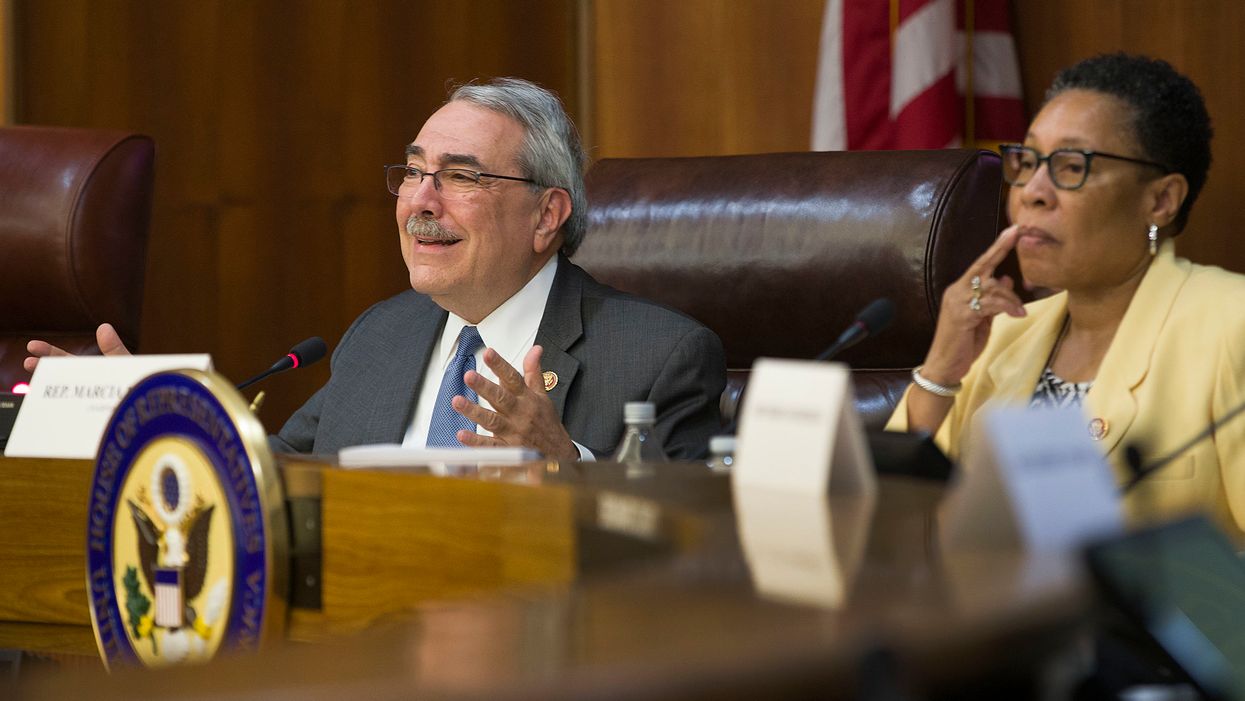House Democrats are continuing their push for stronger voting rights protections, releasing findings this week from a series of 2019 field hearings across the country on impediments to voting.
The 144-page report released Wednesday concludes that "the fundamental right to vote is under attack" and calls for congressional action.
But the report, prepared by the Democrats on a House subcommittee with jurisdiction over elections policy, does not include any of the views of minority Republicans, who said in a separate statement that they disagree with the Democrats' conclusions.
The usual practice in Congress is to include dissenting views in all committee reports, so the breakdown of that process is further evidence of Capitol Hill's ever more harshly partisan tone in general and its recent approach to voting rights in particular.
For decades, there was solid bipartisan support for perpetuating the Voting Rights Act, the 1965 law hailed as one of the crowning achievements of the civil rights movement. But all that changed six years ago after the Supreme Court effectively toppled a crucual pillar of the law, the requirement that the Justice Department or a federal court give advance approval to any changes in voting rules or laws in places with histories of voting discrimination.
The landmark 5-4 ruling in Shelby County v. Holder held that the method for deciding the places subject to this "preclearance" was based on unconstitutionally outdated evidence — but that Congress was welcome to come up with an updated system
In order to collect fresh evidence of ongoing voter discrimination, Democrats reconstituted the Elections Subcommittee of the House Administration Committee when they took control of the chamber this year. The Democratic chairwoman, Ohio's Marcia Fudge, then began conducting field hearings in eight states and the District of Columbia.
Thursday's report catalogued a variety of problems, including purging of valid voters from registration rolls, cutbacks in early voting, polling place closures and onerous voter ID requirements.
But in a separate document, the panel's top Republican, Rodney Davis of Illinois, says that despite the Democrats' efforts, they have "not produced a single witness that was unable to vote in the 2018 election."
The minority report also criticizes the partisan nature of the hearings and of the report, and points out that the House Judiciary Committee was farther along in carrying out a similar mission. Last month it approved a bill, proposed in February, to revitalize the preclearance requirement by adopting a new set of bad-actor standards. In other words, the GOP wrote, "It appears the Democrats had a solution in mind before the fact-finding process even began."
Even if the measure passes the House, the Republican-controlled Senate almost certainly would not consider it, so no new preclearance rules are in store before the 2020 presidential election.
The legislation says a state would be subject to preclearance if there were 15 or more voting rights violations in the last 25 years or 10 or more voting rights violations in the last quarter century when one of those was committed by the state itself.
Under that formula, 11 states including the four most populous — California, Texas, Florida and New York, plus Alabama, Georgia, Louisiana, Mississippi, North Carolina, South Carolina and Virginia — would be subject to preclearance, according to an analysis by Facing South, a media platform for the Institute of Southern Studies.




















